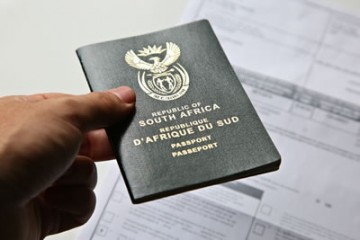Meeting all offshore tax obligations as a South African living abroad
A recent strict crackdown on untaxes funds held by South African's living abroad, it's essential that you ensure you are compliant with all South African tax laws
Written on 18 May 2021
As a South African working abroad, of course it is not new information that it has always been important to ensure that you are meeting all of your South African Revenue Services tax requirements. But after some large, untaxed funds recently being discovered, prompting a strict crack down on offshore assets, it has never been a better time to triple check you are compliant with everything necessary.
After a large R400 billion (owned by South Africans in offshore holdings) was discovered by The South African Revenue Services (SARS), efforts are being heightened to collect taxes owed on these assets going forward.
Despite South Africans using this platform as an effort to avoid the given tax obligations, through the combined efforts of both the use of technologies, as well as the collaboration of multiple countries all over the world, SARS now has the ability to successfully track and trace internationally, the worldwide income/asset base of South African tax residents.
This is due to SARS signing a particular agreement (Automatic Exchange of Information/AEOI), which allows SARS to automatically receive detailed information on South African tax residents regarding all of their foreign revenue.
This information has successfully allowed SARS to discover these new unknown offshore funds mentions above, and all the unpaid taxes that come with, managing to trigger the new, more stringent terms on tax collecting for this particular pool of people.
The information SARS now receives via the AEOI agreement includes:
- Resident’s full name
- Account number
- Resident’s account balance
- Tax reference number
- Income generated from the resident’s account
Is this changed limited to who it can effect?
Despite SARS currently focussing on monitoring more of the high net-worth individuals, due to this new web of access and information, and the depth of detail they can now collect, it would most likely be a safe assumption that this system will be utilized in the coming years.
This could mean an impact on all South Africans for the future, both resident and non-resident.
What direct actions are SARS taking to gather information on foreign dealings?
SARS has begun implementing certain actions in order to gather information they need on all offshore holdings, by directly requesting the information they need from the tax resident.
If the tax resident fails to provide the necessary information to SARS within a time period of 21 days, in the terms of the Tax Administration Act, it is deemed a criminal offence.
Some of the information that SARS is directly requesting from South African tax residents can be (but not limited to):
- Reasons as to why the resident failed to declare foreign assets
- To disclose all bank accounts and details
- To provide all details of any offshore Trusts that they stand as a beneficiary
- To provide a detailed statement of all Assets and Liabilities (including all foreign assets)
- To provide a copy of the following documentation; foreign residence certificate, emigration tax clearance, EMP336 (where applicable)
What options do I have to limit my liability?
Like most tax matters, this is unique to the individual and can not be summarised in to black and white options as such.
Having said this, there are some avenues that you can explore that can potentially limit your tax liability as a whole and protect your financials efficiently.
Financial emigration from South Africa and officially becoming a non-resident for tax purposes will mean you will no longer be required to disclose any foreign income or assets to SARS, due to your worldwide tax obligations being relieved through the emigration process.
Financial emigration can be a huge relief for tax residents of South Africa, looking to limit their tax liabilities in offshore holdings, but is only an avenue worth exploring if the person is ready for a permanent relocation.
It is always recommended to seek advice from an experienced professional, to help manage your tax matters, and to ensure all decisions regarding your tax obligations are ones made to benefit you as much as possible.
If you are considering the process of financial emigration, we are able to connect you to a hand-picked specialist with experience in helping people with all financial matters when emigrating from South Africa.
Request free introduction to an South Africa tax specialist
Our free introduction service will connect you with a hand-picked South Africa tax consultant who is qualified to assist people living in South Africa and abroad with South African tax matters.
Once you have made your request, you will get:
- Free initial consultation to discuss your situation and have your general questions answered.
- Free, informal guidance on the options available to you.
- Overview of any fees, charges and services that you may need to get your South African tax affairs in order, without any obligation to proceed.
Request free introduction to an South Africa tax specialist
Our free introduction service will connect you with a hand-picked South Africa tax consultant who is qualified to assist people living in South Africa and abroad with South African tax matters.
Once you have made your request, you will get:
- Free initial consultation to discuss your situation and have your general questions answered.
- Free, informal guidance on the options available to you.
- Overview of any fees, charges and services that you may need to get your South African tax affairs in order, without any obligation to proceed.


